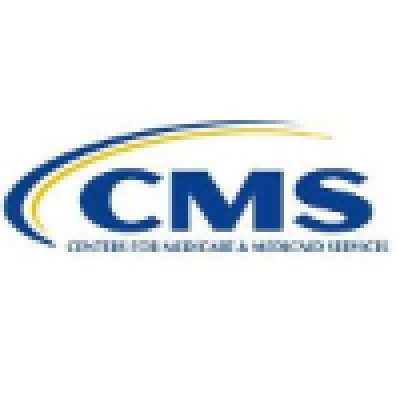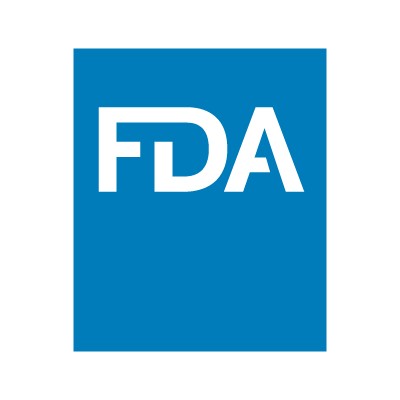https://www.wsj.com/articles/how-to-usher-in-a-new-era-of-preventive-health-care-1438125343
How to Usher In a New Era of Preventive Health Care
People should be able to get any lab test on their own. Waiting for symptoms and a doctor’s order may be too late.
Laboratory tests drive 70% of all clinical decisions in health care. They’re used to determine whether a patient should start taking medication and, if so, which one. They help doctors decide whether a patient should undergo medical procedures or be admitted to the hospital. And they’re used to identify an individual’s risk of developing health conditions such as diabetes or heart disease.
Yet many of us get lab tests only when we’re showing symptoms, which means we may already be sick. And too many of us find out we’re sick when it’s too late to change the course of these conditions.
It’s time to move away from reactive health care. Individuals instead need to be empowered to be proactive, take control of their own health, and work with physicians to detect diseases early or before they take hold. This empowerment will usher in a new era of preventive health care. There are several steps that can help us get there:
All lab tests should undergo review by the Food and Drug Administration. Given the pivotal role of labs in medicine, consumers need to trust the quality and accuracy of the tests they get. The FDA sets the gold standard for quality assurance. Its review is data-driven, objective and uniquely rigorous.
I know this firsthand because Theranos, the company I founded, voluntarily committed to submit all of its lab tests for review starting in 2013. On July 2, the FDA cleared the first of those tests, for herpes simplex virus 1, and the associated finger-stick blood-test technology and underlying system on which our tests are run.
The review included an examination of the company’s systems, methods, chemistry, hardware and software. The FDA scrutinized everything from our collection devices to our analytics. It analyzed study data from more than 800 subjects and assessed our test and test system’s performance outside of clinical laboratories when subjected to a broad range of environmental influences.
This oversight should be the norm. It isn’t. Traditional medical-device manufacturers must submit their lab tests to FDA for review before selling their products. Laboratories that make their own tests aren't required to do so.
The FDA recently proposed requiring laboratories to submit their tests for review. The proposal should be adopted. And Congress should provide the agency with the funds to exercise this oversight.
Innovation needs to be unleashed. The improvements that technology and innovation could bring to health care are limited only by the imagination. But the technological progress that brought us the personal computer, the smartphone, the car was powered by consumer choice and free access to information in the market. That will be true in health care as well.
Our data shows that at least 40% of people today don’t get a lab test when a physician orders it for them, often because the patient can’t afford it. No one should have to forgo care because he can’t afford to get a lab test or can’t figure out how much it costs ahead of time.
Empowering individuals to engage in their own health, including through ordering their own lab tests, means the prices of these services will increasingly become transparent. Transparent pricing and consumer engagement allow markets to function, driving competition and innovation for higher-quality and lower-cost services.
This isn’t just an issue for consumers. Federal and state governments pay tens of billions for lab tests through Medicare and Medicaid. Reducing their costs through competition and innovation will pay big benefits for taxpayers. Accessible testing including at lower cost will also help shift the health-care paradigm to early detection and prevention.
Diagnostic information needs to be more accessible. Getting lab tests today typically requires a doctor’s order, determining insurance eligibility, sometimes multiple appointments, time off from work, and waiting for the results to come back.
Technological breakthroughs can go a long way toward removing some of these barriers. An example: On July 15 the FDA approved a waiver that allows Theranos to run its herpes simplex virus 1 test at its retail Wellness Centers, where samples can be analyzed on the spot instead of being shipped to a centralized facility, and results reported quickly.
Convenience also matters. the more accessible care locations become, and the longer hours they are open, the better people can take control of their own health.
Finally, public policy has an important role to play in furthering the goal of patient-centered health care. I recently worked with leaders in Arizona to pass a state law that allows individuals to order and pay for any laboratory test without having to justify a health concern or rely on insurance eligibility. The law also provides protections for physicians so they can work with patients in a preventive manner around direct-access tests. Individuals across the country should have the same freedom.
You have a fundamental right to access information about your own health. And you should be able to access that information when it matters most—when there is still time to change your life, and the lives of those you love, for the better.
The answers to our challenges in health care lie in the individual. By empowering individuals to engage in their own health, we can build a preventive care system in America—and a world in which fewer people have to say goodbye too soon.
___
Ms. Holmes is the founder and CEO of Theranos, a consumer health-technology and medical-laboratory-services company.
Sunday, May 27, 2018
Saturday, May 26, 2018
Carreyou Book Screen Shots: FDA Internal Documents
Supporting:
http://www.discoveriesinhealthpolicy.com/2018/05/did-fda-inappropriately-leak-pre-public.html
Bad Blood, John Carreyou, May 2018, Kindle edition. Click to enlarge.
David Blaszczak May 2018 Linked In
https://www.linkedin.com/in/david-blaszczak-5b547166/
David Blaszczak
1st degree connection1stFounder and Partner, Precipio Health Strategies
Washington D.C. Metro Area
Healthcare professional with almost 20 years’ of unique experience working for state and federalgovernments, advisor to top investment firms in the U.S., and consultant to healthcare companies.Understands the policy process and the effect on the healthcare delivery system, including the financial i...
Experience
Founder and Partner
Company NamePrecipio Health Strategies
Dates EmployedSep 2014 – Present
Employment Duration3 yrs 9 mos
LocationWashington D.C. Metro Area
Partner
Company NameADVI Health, LLC
Dates EmployedJan 2013 – Sep 2014
Employment Duration1 yr 9 mos
LocationWashington D.C. Metro Area
Senior Health Policy Analyst
Company NamePotomac Research Group
Dates Employed2009 – 2012
Employment Duration3 yrs
Senior Vice President
Company NameWashington Research Group
Dates Employed2005 – 2009
Employment Duration4 yrs
Health Insurance Specialist
Company NameCenters for Medicare & Medicaid Services
Dates Employed2000 – 2005
Employment Duration5 yrs
Compliance Specialist
Company NameMaryland Insurance Administration
Dates Employed1998 – 2000
Employment Duration2 yrs
Healthcare Investigator
Company NameState of Maryland Office of the Attorney General
Dates Employed1997 – 1998
Employment Duration1 yr
Intern
Company NameFDA Center for Drug Evaluation and Research
Dates Employed1996 – 1997
Employment Duration1 yr
Saturday, May 19, 2018
FDA's RFA for Stakeholders & Experts in Regulatory Science (May 2018)
Originally posted as:
https://grants.nih.gov/grants/guide/rfa-files/RFA-FD-18-025.html
https://grants.nih.gov/grants/guide/rfa-files/RFA-FD-18-025.html
- Enhancing regulatory science and expediting drug development
- Facilitating rare disease drug development
- Advancing the use and understanding of innovative statistical methods and trial designs
- Advancing development of combination product review
- Enhancing the use of real world evidence for use in regulatory decision-making
- Enhancing regulatory decision tools to support drug development and review
- Enhancing the Incorporation of the Patient's Voice in Drug Development and Decision-making
- Enhancing Benefit-Risk Assessment in Regulatory decision-making
- Advancing model-informed drug development
- Enhancing capacity to review complex innovative designs
- Enhancing capacity to support analysis data standards for product development and Review
- Working collaboratively with FDA to identify and prioritize pressing research issues related to the key areas of interest identified in PDUFA VI and the 21st Century Cures Act
- Conducting research and reviews of relevant literature to plan the focus of sessions in which experts are convened to provide critical input on regulatory science issues;
- Convening expert stakeholders in focused, substantive discussions of these issues, and identify and explore potential strategies for resolving them
- Developing reports that summarize the background research and discussion at each meeting, and posting these reports for public access to promote external interest and advance public understanding of key research issues; and
- Helping to make research results and reports actionable by FDA, industry, and other stakeholders.
Part 2. Full Text of Announcement
RESEARCH OBJECTIVES
The FDA Center for Drug Evaluation and Research seeks to support efforts to research, identify key issues, and convene appropriate subject matter experts to help advance regulatory science to promote the increased availability of safe and effective drugs to the public. This effort will inform regulatory science by advancing the scientific discussion of key research topics of interest to both FDA and external stakeholders such as the pharmaceutical industry, healthcare professionals, patients, and academic researchers. FDA seeks support to address research needs identified in the 2018 reauthorization of the Prescription Drug User Fee Act (PDUFA VI) and requirements under the 21st Century Cures Act. The research areas identified in PDUFA and the 21st Century Cures Act represent key scientific priorities identified by FDA, Congress, and stakeholders that, if advanced, will help expedite the development of drugs and improve efforts to assess their safety and effectiveness, thereby increasing the availability of safe and effective drugs to the public.
More information about the research areas identified under PDUFA VI can be found at the following website:
SPECIFIC AREAS OF RESEARCH INTEREST
In the most recent reauthorization of PDUFA, FDA identified specific areas of research interest in consultation with drug industry representatives, patient and consumer advocates, health care professionals, and other public stakeholders. These areas represent a wide range of new innovative initiatives related to virtually every aspect of the new drug life cycle. Advancing research, discussion, and understanding on these areas will benefit FDA's stakeholders, expedite drug development, and improve FDA, industry, and researchers' ability to assess drugs' safety and effectiveness. These initiatives may include, but not be limited to, the following:
Several key areas of research interest are described in greater detail below:
Enhancing the Incorporation of the Patient's Voice in Drug Development and decision-making
In PDUFA V, FDA conducted a series of Patient-Focused Drug Development (PFDD) meetings with the aim to more systematically gather patients' perspectives on their condition and available therapies to treat their condition. Under PDUFA VI, FDA proposes to build on these efforts to bridge from PFDD meetings to fit-for-purpose tools to collect meaningful patient input that can be incorporated into regulatory review and used by all stakeholders to assess drugs' benefit to patients. The field is constantly evolving and this work cannot be done in isolation. Many professional groups and research teams around the world have developed and are developing templates, checklists, and guidelines for different aspects of gathering and interpreting patient experience data, and many such documents already exist for patient reported outcomes. FDA seeks to identify the challenges and opportunities within the current collection and use of patient input. Advancing research in this area will help ensure that drug development is more responsive to patients' input and needs.
Structured Approaches to Enhancing FDA’s Assessment of Benefits and Risks in Human Drugs
FDA’s qualitative Benefit-Risk (B-R) Framework serves as the foundational element of CDER’s and CBER’s structured benefit-risk assessment. With implementation of the B-R Framework gaining solid ground within FDA’s drug review, there is now an opportunity to systematically explore and advance the use of more technical approaches within the qualitative framework to inform benefit-risk assessment in targeted cases. These may include structured techniques to characterize underlying judgments and uncertainties inherent in the assessment, methods to compare and/or weigh benefits and risks, and other qualitative and quantitative approaches aiming to improve the quality of the decision-making process in some cases. FDA recognizes that the agency’s efforts to develop a more structured approach to benefit-risk assessment could be complemented by further engagement of stakeholders and other parties, providing an opportunity to share challenges and lessons learned in applying a more structured approach to benefit-risk decision-making. Such research would benefit FDA, drug manufacturers, health policy analysts, and others who make decisions about the benefits and risks of drugs.
APPROACH
Achieving these research objectives requires bringing together input from a wide range of relevant external subject matter experts and other interested public stakeholders. In addition, this input process should be timely, well-informed, candid, thoughtful, thorough, and well-documented. FDA is therefore seeking to establish a cooperative agreement with a qualified awardee with experience in the conduct of the needed research, workshops and other meetings, and related work.
The goal of this collaboration is to advance research in several key areas of interest to FDA and external stakeholders by convening stakeholders with diverse expertise, and to inform and support the advancement of regulatory science priorities, particularly those identified in PDUFA VI and the 21st Century Cures Act. Through a series of meetings, workshops, webinars, and/or workgroups, the awardee would provide effective opportunities for engagement of these stakeholders to pursue research on these topics. In addition to gathering input from selected stakeholder groups, the awardee will conduct background research prior to expert engagement, use input gathered to develop white papers and research reports, and communicate updates on the progress of its regulatory science research to broader audiences. Specific objectives of this collaboration would include:
The timeframe of the project is five years. Conducting this research will require a multi-year effort, involving a variety of topics, stakeholder groups, and issue specific activities. We propose to establish a five-year collaboration, aligned with the reauthorization of the PDUFA agreement, to facilitate the successful, in-depth exploration of key research topics.
Inherent in the cooperative agreement award is substantive involvement by the awarding agency. Accordingly, FDA will have substantive involvement in the programmatic activities funded by this Cooperative Agreement. Substantive involvement includes, but is not limited, to the following:
FDA will provide guidance, and assistance in the identification of key research objectives.
Subscribe to:
Comments (Atom)












